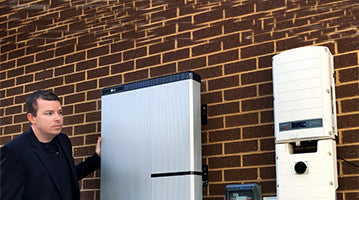
Types of batteries in solar systems, their advantages and disadvantages, and how to choose them.
In solar energy systems, batteries are critical equipment for storing solar energy. Common types of batteries used in solar systems include lead-acid batteries, nickel-iron batteries, and lithium-ion batteries. Different types of batteries have their own advantages and disadvantages, as follows:
1.Lead-acid batteries: Lead-acid batteries are the most widely used batteries in solar systems due to their relatively low cost and ease of maintenance and replacement. However, their energy density is relatively low, their lifespan is relatively short, and they require regular maintenance.
2.Nickel-iron batteries: Nickel-iron batteries have a higher energy density, longer lifespan, and are less susceptible to damage from overcharging or overdischarging. However, they are relatively expensive and heavy, and require special installation brackets.
3.Lithium-ion batteries: Lithium-ion batteries have high energy density, long lifespan, and are lightweight, and do not require regular maintenance. However, they are relatively expensive and require special charging and discharging management.
When choosing a battery, several factors need to be considered:
1.Capacity: Choose a battery with a suitable capacity according to the amount of solar energy to be stored and the electricity demand of the load.
2.Working temperature: Consider the ambient temperature of the solar system and the applicable temperature range of the battery, and choose a suitable battery.
3.Cycle life: Choose a battery type and brand that is suitable for the required service life.
4.Cost: Choose a battery type and brand that is suitable for your budget.
In summary, choosing the right battery for your solar system requires considering multiple factors, including capacity, working temperature, cycle life, and cost. When choosing a battery, make a reasonable choice based on your actual needs and budget.

0 comments